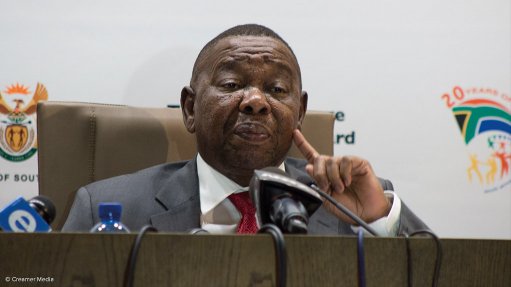
Dr Blade Nzimande
Photo by: Duane Daws/Creamer Media
South African Transport Minister Dr Blade Nzimande reaffirmed on Friday the country’s commitment to the implementation of the Yamoussoukro Decision (YD) on liberalising air transport across Africa. He did so in a speech to the 48th annual general meeting of the Airlines Association of Southern Africa, in Livingstone, Zambia, which was delivered on his behalf by South African Civil Aviation Authority (SACAA) CEO Poppy Khoza.
“South Africa has already started to implement the key principles of the Yamoussoukro Decision with ready and willing States pending the continental implementation of the multilateral framework,” she read. The country had already deregulated air services with 36 other African States. It was also one of the 23 African countries that had taken part in the launch of the Single African Air Traffic Market by the African Union in January.
The African Civil Aviation Commission was helping countries implement the YD, particularly in the areas of standardisation and compliance. “[W]here Air Transport liberalisation has been applied, whether in full or partially, we have seen significant benefits, including intra-African city pairing, improved connectivity and growth in passenger traffic.”
“However, it is important that African airlines position themselves to take advantage of this window of opportunity,” stated the Minister in his speech. “If operators in Africa do not take advantage of open skies, airlines from other parts of the world will overtake those in Africa. The time is now to make in-roads so that inter-connectivity hurdles within the African continent are addressed.”
“Africa needs to exert a lot of efforts to scrap non-physical barriers and reap the benefits of liberalisation which in turn will result in improved international trade and tourism. Other challenges are related to indirect barriers to market access like visa requirements, custom restrictions, constraints to ground handling and slot allocation.” Failure to eliminate such barriers would hinder the sustainable development of African air transport services.
Sustainable aviation in Africa also required an industry that was efficient, safe and secure. Ensuring this was the challenge facing the continent’s aviation oversight and regulatory bodies, such as the SACAA.